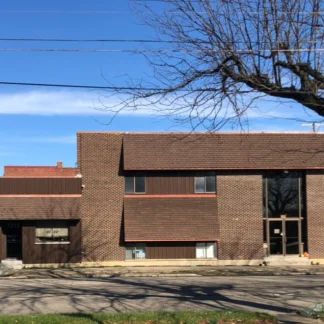AA - Alcoholics Anonymous
AA – Alcoholics Anonymous is a non-profit rehab located in Middletown, Ohio. AA ...
The Mindful Healing Center is an accredited outpatient treatment facility located in Middletown, OH that is dedicated to promoting mental health and well being through holistic and evidence based approaches. With a focus on mindfulness, compassion, and personalized care, The Mindful Healing Center offers a range of drug rehab services to support individuals in their healing journey.
The Mindful Healing Center provides a variety of services aimed at supporting individuals on their path to healing.
The Mindful Healing Center offers individual therapy sessions with experienced therapists who provide a safe and nonjudgmental space for clients to explore their thoughts, emotions, and experiences. Therapists utilize evidence based approaches tailored to the individual’s needs, such as cognitive behavioral therapy (CBT), mindfulness based therapy, and acceptance and commitment therapy (ACT).
The Center’s intensive outpatient program (IOP) is a structured program that offers a higher level of care while allowing individuals to continue living at home and participating in their daily activities. The IOP is suitable for individuals who require more intensive support than traditional outpatient services but do not require 24/7 residential care. It provides a balance between comprehensive treatment and maintaining personal responsibilities.
The Mindful Healing Center incorporates holistic interventions to support the mind body connection. These may include yoga, art therapy, expressive arts, music therapy, and other creative modalities. These holistic approaches encourage self expression, promote self discovery, and facilitate emotional healing.
Contact us for more information: (513) 849-2081

Connect with The Mindful Healing Center by calling their admissions team directly.
(513) 849-2081 Website Get DirectionsResearch clearly demonstrates that recovery is far more successful and sustainable when loved ones like family members participate in rehab and substance abuse treatment. Genetic factors may be at play when it comes to drug and alcohol addiction, as well as mental health issues. Family dynamics often play a critical role in addiction triggers, and if properly educated, family members can be a strong source of support when it comes to rehabilitation.
Group therapy is any therapeutic work that happens in a group (not one-on-one). There are a number of different group therapy modalities, including support groups, experiential therapy, psycho-education, and more. Group therapy involves treatment as well as processing interaction between group members.
In individual therapy, a patient meets one-on-one with a trained psychologist or counselor. Therapy is a pivotal part of effective substance abuse treatment, as it often covers root causes of addiction, including challenges faced by the patient in their social, family, and work/school life.
Group therapy is any therapeutic work that happens in a group (not one-on-one). There are a number of different group therapy modalities, including support groups, experiential therapy, psycho-education, and more. Group therapy involves treatment as well as processing interaction between group members.
In individual therapy, a patient meets one-on-one with a trained psychologist or counselor. Therapy is a pivotal part of effective substance abuse treatment, as it often covers root causes of addiction, including challenges faced by the patient in their social, family, and work/school life.
In individual therapy, a patient meets one-on-one with a trained psychologist or counselor. Therapy is a pivotal part of effective substance abuse treatment, as it often covers root causes of addiction, including challenges faced by the patient in their social, family, and work/school life.
AA – Alcoholics Anonymous is a non-profit rehab located in Middletown, Ohio. AA ...
Al – Anon and Al – Ateen is a non-profit rehab located in Middletown, Ohio. Al –...
Access Counseling Services offers outpatient and intensive outpatient service fo...
Community Behavioral Health - Breiel Boulevard offers an array of mental health,...